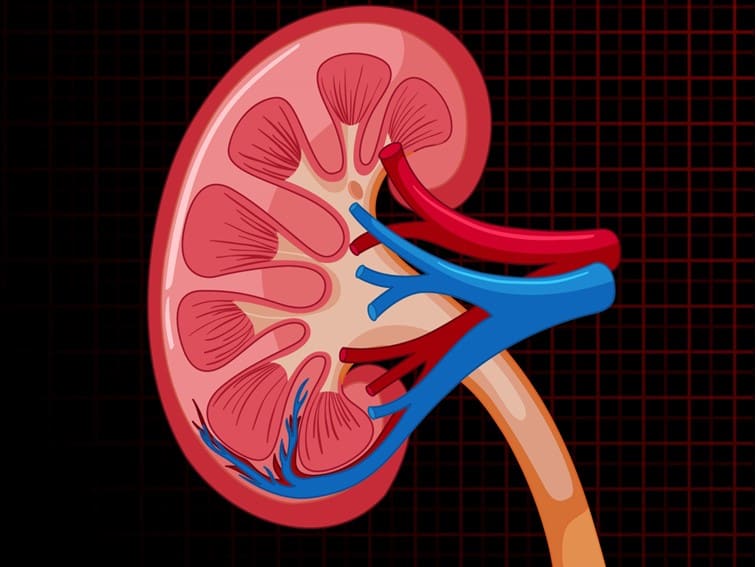Symptoms of Kidney Disease
Kidneys play an important role in maintaining your health, electrolyte balance, and regulating your blood pressure and vitamin D and hemoglobin levels. There are many factors and underlying causes that may interfere with the normal functioning of your kidneys owing to which they may not be able to filter and clean blood. According to the Indian Journal of Nephrology, in India, almost 50 to 60% of cases of chronic kidney disease are due to diabetes and hypertension.
When excess wastes, fluids, and minerals build up in the body, they may lead to high blood pressure, heart problems, and other health issues such as fatigue and weak bones. Symptoms may differ based on the age, severity of the condition, and overall health status of an individual. Therefore, people with kidney disease or kidney failure may experience different types of symptoms.
However, a majority of people with kidney disease do not experience any symptoms until the kidney disease becomes severe. Progressive and undetected kidney disease can lead to kidney failure – which is a life-threatening condition.
Symptoms of kidney disease
In general, the following are the 5 most common signs and symptoms of kidney disease:
1. Swollen Ankles and Feet
You should be aware of this sign because it indicates kidney disease. When kidney function deteriorates salt and water retention occurs leading to swelling of your feet and ankles. However, swollen legs can also be a potential warning sign of liver and heart disease. Therefore, if you experience this symptom, you must see a nephrologist to rule out other health conditions.
2. Foamy Urine
Bubbles in the urine or foamy urine is an indication of protein loss in the urine. Leakage of protein in the urine is a potential warning sign of kidney disease. Do not ignore the foamy urine!
Early recognition and treatment can save your kidneys
3. Dry and Itchy Skin
Kidneys perform very important functions in the body apart from filtering blood and removing waste material from the body. Some of their prominent functions include the maintenance of the right minerals, blood pressure, fluid balance, electrolyte balance, and levels of vitamin D and hemoglobin. Therefore, during the advanced stages of kidney disease, kidneys are no longer able to maintain adequate levels of minerals, calcium, and vitamin D.
Dry and itchy skin can be a sign of kidney disease.
4. Blood in the Urine
This can be a sign of kidney damage. When any damage occurs to the filtering units of the kidney blood starts to leak into the urine – signaling kidney disease. Often this cannot be seen with the naked eye, so will be detected only when the urine is tested.
However, blood in urine can also be an indication of kidney infection, kidney stones, and kidney tumors.
5. Weakness, Fatigue, and Trouble Concentrating
When there is severe kidney disease kidney function reduces drastically. It leads to the buildup of toxins and impurities in the blood. When this happens, you may feel weak, exhausted, fatigued, and extremely tired and you may not be able to concentrate. Low levels of hemoglobin due to decreased kidney function can cause anemia – which will make you feel weak
Bottom Line
Kidney disease can make you sick gradually over a period of time because it progresses silently. You may not be able to recognize the early warning signs and symptoms of kidney disease until it is too late. Therefore, if you are at risk of kidney disease due to family history, high blood pressure, or diabetes, it is recommended that you should get tested as per your nephrologist’s recommendation. The most important thing is to continue to maintain a regular follow-up with the nephrologist as recommended and regularly monitor your kidney functions.

Leave a Reply